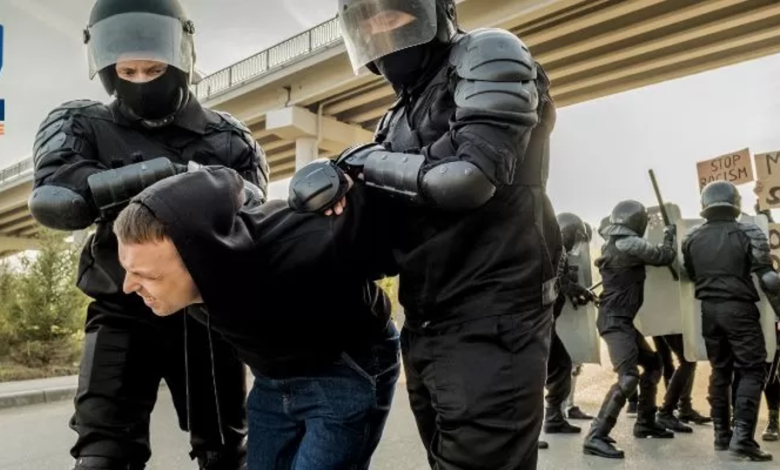Police Brutality Cases in California: What Are Your Legal Options?
Police brutality in California? Know your rights & legal options for excessive force cases. Learn how to file complaints & lawsuits for justice.

Police brutality in California remains a pressing civil rights issue, with numerous cases of excessive force, wrongful arrests, and misconduct making headlines each year. Victims often face physical injuries, emotional trauma, and financial burdens while struggling to hold law enforcement accountable. If you or a loved one has experienced police brutality, understanding your legal rights is the first step toward seeking justice. This guide explores the options available to California residents, from filing official complaints to pursuing civil lawsuits under state and federal laws.
Despite growing public awareness and police reform efforts, police brutality in California continues to disproportionately impact marginalized communities. Legal recourse exists, but navigating the system can be overwhelming without proper guidance. Whether you’re dealing with excessive force, racial profiling, or unlawful detention, knowing how to document evidence, report misconduct, and secure experienced legal representation can make a critical difference in your case. Below, we break down the key steps victims can take to protect their rights and pursue accountability.
Police Brutality Cases in California
Understanding Police Brutality in California
Police brutality refers to the use of excessive or unnecessary force by law enforcement officers. In California, incidents can range from physical assault and wrongful arrests to racial profiling and lethal shootings. Despite laws meant to prevent such misconduct, cases continue to arise, often leaving victims with long-term trauma.
Common Forms of Police Brutality
Excessive force is one of the most reported forms of police brutality. This includes beatings, chokeholds, and unjustified shootings. Another prevalent issue is wrongful arrest, where individuals are detained without probable cause. Additionally, verbal abuse, intimidation, and racial discrimination fall under misconduct that violates civil rights.
Legal Protections Against Police Brutality
Both federal and state laws protect individuals from police misconduct. The Fourth Amendment of the U.S. Constitution prohibits unreasonable searches and seizures, while California’s Bane Act allows victims to sue for civil rights violations. The Ralph Act further safeguards against violence or threats based on race, religion, or other protected characteristics.
Steps to Take After Experiencing Police Brutality
If you believe you’ve been a victim of police brutality, acting swiftly is essential. The first step is to seek medical attention if injured. Documenting injuries through photographs and medical reports can serve as critical evidence later.
Next, file a complaint with the law enforcement agency involved. In California, police departments and sheriff’s offices have internal affairs divisions that investigate misconduct claims. However, these investigations are often biased, making external legal action necessary.
Gathering Evidence
Evidence is the cornerstone of any police brutality case. Collect witness statements, video footage (from body cams, surveillance, or bystanders), and official police reports. Keeping a detailed account of the incident, including officers’ badge numbers and patrol car details, can strengthen your case.
Filing a Civil Rights Lawsuit
If you’ve been a victim of police brutality in California, filing a civil rights lawsuit under 42 U.S.C. § 1983 or California’s Bane Act may be your most powerful legal recourse, allowing you to sue individual officers and government entities for violating your constitutional rights through excessive force, false arrest, or other misconduct. To build a strong case, you’ll need to gather evidence like body camera footage, witness statements, and medical records, then file within California’s two-year statute of limitations (or one year for government claims), though overcoming qualified immunity defenses often requires an experienced civil rights attorney who can prove officers knowingly violated “clearly established” constitutional rights—successful lawsuits can recover compensation for medical bills, emotional distress, lost wages, and in some cases, even prompt policy reforms within police departments.
Challenges in Proving Police Brutality
Despite legal protections, proving police misconduct is difficult. Law enforcement agencies often have qualified immunity, shielding officers from liability unless their actions violate clearly established laws. Additionally, police unions and internal investigations may hinder accountability.
The Role of Body Cameras and Transparency
Body cameras have become a critical tool in police brutality cases in California, offering objective evidence that can either corroborate or contradict official reports, yet their effectiveness hinges on transparency policies that many departments still resist. While California law (SB 1421) mandates the release of body cam footage for serious misconduct investigations, delays, selective editing, and outright refusal to release videos remain common obstacles—creating an uneven playing field where victims must often file lawsuits just to access the evidence of their own assault.
Even when footage exists, police unions frequently argue its release compromises investigations or officer privacy, while civil rights advocates counter that these barriers perpetuate a culture of impunity for police misconduct, making systemic reform difficult without stronger legislation requiring automatic public disclosure in use-of-force cases and strict penalties for tampering with or failing to preserve this crucial evidence.
Working with Civil Rights Organizations
Numerous organizations in California support victims of police brutality. The ACLU of Southern California and the National Lawyers Guild provide legal assistance and advocacy. These groups can help navigate the complexities of filing complaints and lawsuits while amplifying public awareness.
The Importance of Legal Representation
Hiring a skilled attorney specializing in civil rights or police misconduct cases is vital. Lawyers can help gather evidence, negotiate settlements, and represent victims in court. Many firms offer free consultations, and some work on a contingency basis, meaning they only get paid if you win your case.
Recent Reforms and Legislative Changes
California has introduced several reforms to address police brutality, including AB 392, which redefines when officers can use deadly force. Additionally, SB 1421 increased transparency by allowing public access to records of officer misconduct. While progress is being made, systemic issues persist.
The Role of Community Activism
Grassroots movements and protests have been instrumental in pushing for police reform. Organizations like Black Lives Matter and local advocacy groups continue to demand accountability and systemic change. Public pressure has led to policy revisions and increased scrutiny of law enforcement practices.
Read More: How to File a Healthcare Negligence Claim in New York
Conclusion
Police brutality in California continues to devastate lives, but victims have powerful legal tools to fight for justice and accountability. Whether through civil lawsuits, internal complaints, or working with advocacy groups, taking action can lead to compensation for damages and systemic change. While the path to justice may be challenging, understanding your rights and legal options is the first crucial step toward holding law enforcement responsible for misconduct.
If you’ve experienced police brutality in California, remember you don’t have to navigate this difficult process alone. Skilled civil rights attorneys and community organizations stand ready to help victims document evidence, file claims, and pursue justice through every available legal channel. By taking action, you not only seek redress for your own suffering but also contribute to the broader movement for police accountability and reform across California. Your courage to speak out could prevent future acts of brutality and help create meaningful change in our justice system.
FAQs
What qualifies as police brutality in California?
Police brutality includes excessive force, wrongful arrests, racial profiling, and other forms of misconduct that violate civil rights.
How long do I have to file a lawsuit for police brutality?
In California, the statute of limitations is typically two years from the date of the incident, but exceptions may apply.
Can I sue the police department directly?
Yes, lawsuits can be filed against individual officers, police departments, or municipalities under federal and state laws.
What if there were no witnesses to the incident?
Other evidence, such as medical records, body cam footage, or expert testimony, can still support your case.
Are there free legal resources for police brutality victims?
Yes, organizations like the ACLU and legal aid clinics offer free or low-cost assistance to victims of police misconduct.











